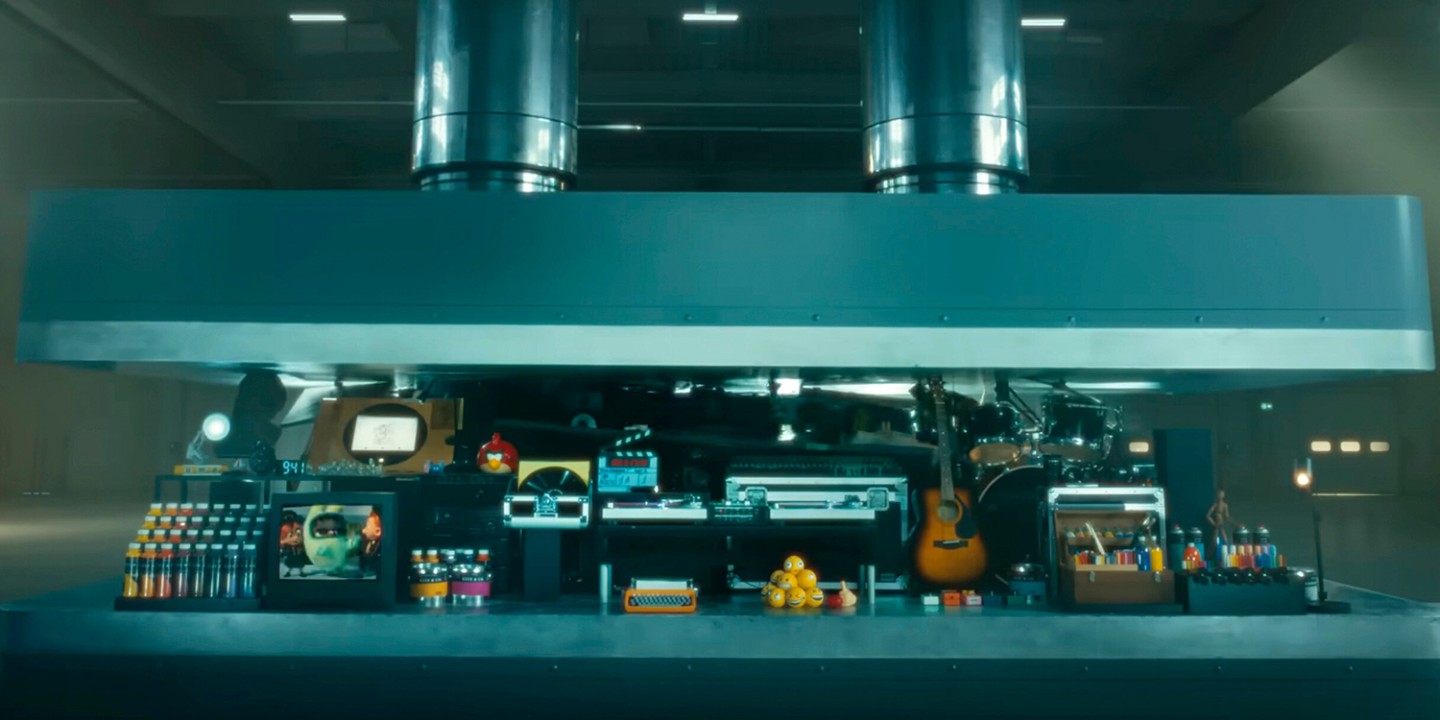A crushing lack of humanity
Both Apple’s “Crush” ad and Catholic Answers’ AI priest alarmed people. There’s some hope in that reaction.

(Apple)
Ametronome ticks as a Cher record spins to life on a turntable. The camera pulls back to reveal these objects arranged neatly on a hydraulic press—along with a trumpet, a piano, a guitar, analog cameras, cans of paint, leather-bound journals, old computer monitors, and even a stack of foam emojis. As the press plate lowers, the trumpet is crushed, the paint cans burst, and the camera lenses shatter. The emoji often used to convey a sense of stunned embarrassment is caught at the edge of the press, wide eyes bulging as its pink cheeks are squashed into oblivion, pulverized with all those older tools of expression in a final blast of dust and detritus. When the press opens, we see the debris has disappeared—or rather, it’s been compressed and packaged neatly as the thinnest, lightest, most powerful iPad yet. A disembodied hand offers it to the viewer as Cher sings, “All I ever need is you.”
Apple no doubt intended this ad, called “Crush,” as a vision of vast creative possibility in a lightweight, portable package. Viewers, however, experienced it as a dystopian nightmare tapping into their worst fears about tech. Watching a machine grind the tools of human creativity into dust made some people viscerally ill. In response, Apple pulled the ad and apologized.
Read our latest issue or browse back issues.
Elsewhere, Catholic Answers—a popular apologetics website and owner of the domain catholic.com—debuted an AI bot named Father Justin. A 3-D avatar in a Roman collar, Father Justin was trained on vast stores of Catholic doctrine to address common questions such as the difference between mortal and venial sin. But soon he claimed he’d been ordained by a human bishop and could witness the sacrament of marriage and grant absolution through the sacrament of reconciliation. Like ChatGPT helping our columnist Melissa Florer-Bixler write a sermon, Father Justin’s answers seemed to come “from everywhere and nowhere” (see “A pulpit without a context”).
The response of physical and spiritual revulsion was swift among both progressive and conservative Catholics, who experienced a rare moment of unity in their horror at the idea of having their sins heard—and absolved—by a string of code. Catholic Answers promptly laicized Father Justin, who is now just “Justin the virtual apologist.”
The public response to both the iPad ad and the AI priest exposed a deep aversion to the outsourcing of our souls to big tech. In “Crush,” when Cher sings “I’m down and all alone,” we are primed to recognize the tools of creation as the touchpoints that will in some way soothe our alienation, restoring us to communion with humanity. Instead we see destruction that leads to a deeper loneliness, embodied in the razor-thin profile of the iPad’s black mirror. The total removal of the tactile experiences of creativity proved a step too far.
So did Father Justin’s offer of robo-absolution. Confession, like creative expression, is a vulnerable act that restores one to the community; that’s why it’s called the sacrament of reconciliation. The priest stands in as representative of Christ and the church, something Catholics believe code can’t do.
Though “Crush” and Father Justin might have confirmed some techno-pessimists’ fears for our future, the public’s swift rejection of both is a sign of hope. When offered human experiences without humanity, the answer was a resounding no.





